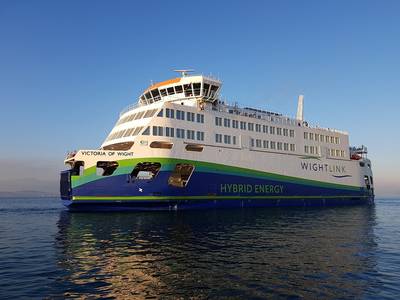Flow Batteries Tested For Zero-Emission Marine Propulsion
A new project, FLO-MAR, has attracted funding from MarRI-UK’s Clean Maritime Call to assess the feasibility of using flow batteries in vessels to enable zero-emission marine propulsion and auxiliary power.
Four UK organizations will work together on the project to investigate how the design of electric and hybrid ships, from ferries through to tugs and wind farm vessels, can be optimized to accommodate flow batteries and to assess the advantages this technology offers in comparison with existing lithium-ion batteries and hydrogen fuel-cells.
Flow batteries have the potential to offer faster charging in port, coupled with cost-effective, high-capacity storage, however they have not yet been configured for marine applications. The FLO-MAR project will select the vessel types and operating situations most suitable for flow batteries and will develop an outline vessel design to validate the advantages offered by this battery type.
The Flow-Mar project will assist the UK to achieve The Clean Maritime Plan’s goal of ‘zero emission vessels operating in UK waters’ by enabling the replacement of fossil fuel combustion with electric propulsion. Preliminary investigations suggest that flow batteries could be particularly well suited to a variety of vessels including domestic passenger vessels as well as offering a possible solution for shore-power systems in ports.
The Flow-Mar consortium includes: Houlder, naval architects with experience in vessel design; Swanbarton, specialists in energy storage and control technologies for electrical power systems; Lloyd’s Register, a classification society; and Marine South East, a marine cluster with expertise in delivering innovation projects and commercialization road maps.














